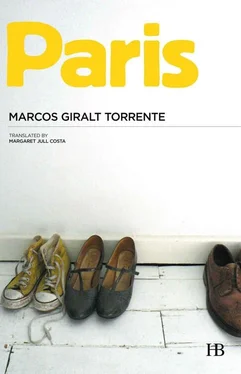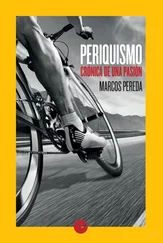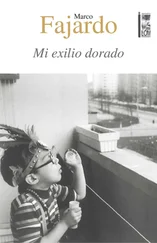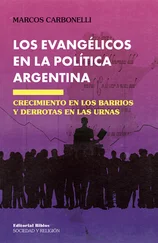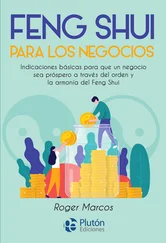Marcos Giralt Torrente - Paris
Здесь есть возможность читать онлайн «Marcos Giralt Torrente - Paris» весь текст электронной книги совершенно бесплатно (целиком полную версию без сокращений). В некоторых случаях можно слушать аудио, скачать через торрент в формате fb2 и присутствует краткое содержание. Год выпуска: 2014, ISBN: 2014, Издательство: Hispabooks, Жанр: Современная проза, на английском языке. Описание произведения, (предисловие) а так же отзывы посетителей доступны на портале библиотеки ЛибКат.
- Название:Paris
- Автор:
- Издательство:Hispabooks
- Жанр:
- Год:2014
- ISBN:9788494228452
- Рейтинг книги:5 / 5. Голосов: 1
-
Избранное:Добавить в избранное
- Отзывы:
-
Ваша оценка:
- 100
- 1
- 2
- 3
- 4
- 5
Paris: краткое содержание, описание и аннотация
Предлагаем к чтению аннотацию, описание, краткое содержание или предисловие (зависит от того, что написал сам автор книги «Paris»). Если вы не нашли необходимую информацию о книге — напишите в комментариях, мы постараемся отыскать её.
Paris — читать онлайн бесплатно полную книгу (весь текст) целиком
Ниже представлен текст книги, разбитый по страницам. Система сохранения места последней прочитанной страницы, позволяет с удобством читать онлайн бесплатно книгу «Paris», без необходимости каждый раз заново искать на чём Вы остановились. Поставьте закладку, и сможете в любой момент перейти на страницу, на которой закончили чтение.
Интервал:
Закладка:
“Sit down,” she said.
Many years have passed since then, and my memories tend to overlap and nothing is as it was, but I can remember my mother’s firm voice as clearly as I can remember the feeling of emptiness and disquiet that filled me when I heard it — like the time before an exam for which we are ill prepared, when it’s still so easy to think that, with a little luck, we’ll scrape through, a time that ends far too soon and leaves us facing something that no longer depends on us alone, and reveals the hopes of success we had been nursing up until then to have been flimsy and unfounded. As with that morning in Burgos, my memory grows confused, as if it were some now nonexistent building whose shape we can clearly recall, but not where the windows were, or what materials it was made of, or what the decoration on the façade was like. Past and present merge into one, and it’s the thoughts I had then, more than my mother’s vague and only approximate words, that guide me and endure. “Sit down,” I hear her say now, just as I heard her say then. “Sit down,” she says in my memory, while I think what an unusual and, at the same time, foreseeable and desirable scene that is, and just as on that afternoon, I can only remember the final stages immediately before arriving here, the whole day spent at school and then my return home. She’s still smiling, aware, perhaps, that, in her nervousness, she spoke somewhat brusquely, and she gestures with her hand to the other armchair, very close to hers. I see her looking rather doubtfully at the sofa, as if it had suddenly occurred to her that it might be a better backdrop for what she has in mind, but for some reason, she rejects the idea.
“Listen,” she says now, just as she said then, after waiting in silence for me to make myself comfortable. She’s leaning one elbow on the arm of her chair, and her other hand is resting on her bare feet. She’s still smiling, and I’m not thinking, only waiting, conscious of my impatience. Her imperative was both a command and a pause she has given herself so as to put her ideas in order.
“A few things have happened lately that we need to talk about. They’re not important, but they deserve an explanation.”
My mother is nervous. I can tell, because, again, she stops speaking, as if she didn’t know how to continue, then suddenly she straightens up and slides her legs to the floor and puts on the shoes that are lined up before her on the carpet. She bends over toward the coffee table in front of her and takes out a cigarette from the pack lying there on a pile of books, next to her lighter. She lights the cigarette and leans back, holding an ashtray in her left hand. This time she doesn’t take off her shoes or sit with her legs up; she crosses one leg over the other and remains silent while she exhales the first puff of smoke, having first held it for some time in her lungs. The music stops, and for a moment, I can hear the dull buzz of the speakers, until the arm swings back to its rest and the platter stops spinning.
“We have to talk. That’s the only way we can restore trust between us.”
My mother speaks slowly and hesitantly, although she has now made an effort to soften the somewhat chilly tone of her first words and is smiling more broadly. She’s holding the ashtray steady on the arm of her chair and gently swinging one foot as she starts to thread together the explanations that will help create the diaphanous cloth on which she will later embroider her whole argument. I haven’t even opened my mouth, and she seems to prefer it like that. There’s nothing I can say, she is the one doing the talking.
“I know how shocked you must have been by that meeting in the café and how confused you must have felt when I didn’t even mention it to you. You must have been in quite a state if you felt driven to phone Delfina.”
She is finding it difficult to begin, and perhaps that’s why she’s looking at me so hard, as if to make sure I’m following what she’s saying. For a few seconds, she says nothing, and I think of the veiled reproach in her last words, which I know was entirely involuntary, and of the strange way she described that meeting. “That meeting in the café,” she said, instead of saying what would have seemed easier, that meeting with your father. But we’re only at the beginning, we have to go step by step.
“I’m not excusing myself,” my mother says, after taking another puff of her cigarette, causing the coral and ivory bracelets on her wrist to slip down over her sleeve to her elbow then slip back up again once she has removed the cigarette from her lips. “I don’t need to. I know you’ll understand. I didn’t intend to hide that from you. I wasn’t sure what I was going to do, and until I’d made that decision, I didn’t want to alarm you. Do you really think me capable of concealing something like that from you?”
These words are spoken without much conviction, and the question seems more rhetorical than anything else. She falls silent again, and before the silence grows too dangerously long, I utter an almost inaudible “No” to speed up the pace of her argument. “Of course not,” I add more loudly. She seems grateful for this and smiles with spontaneous intensity. I can see the expression on her face, which, even in the dim light, looks terribly pale.
“He asked me for money, but you know that already. He phoned in the morning wanting to arrange a meeting.”
Again, that lack of a name , I think. Again, that artificial void. Meanwhile, her smile has disappeared, as if, you might say, it had gone in search of the words with which to vanquish the shame and fear pursuing it.
“That’s the only time I’ve seen him,” she adds quickly, as if it were important to make this clear, because she thinks this is the main point of friction: seeing my father without telling me. She’s right, although the emphasis is wrong. It isn’t because of him, but because of her. Like Paris , I think, without being able to think beyond that because my mother continues to talk.
“At first, I refused, because we simply don’t have that kind of money. But he seemed so defeated, and although he tried not to show it, I could see that he was really worried. He said it was some debt he’d run up, and that he needed to pay back the money as soon as possible.”
My mother lists these facts, as if she were reciting a text learned by heart, and I tell myself it couldn’t possibly have been that way. He hadn’t seemed particularly defeated to me, so why did she say he was?
“I told him I couldn’t give him the money, and the idea of selling the apartment only occurred to me after I’d left the café. I didn’t want to tell you anything about it until I’d thought it through properly, but then you preempted that decision, and, well, what happened happened. I can quite understand why you did it. I would have done the same. My silence led you into deceit.”
I hear her last words while I’m still thinking about my father, whom she doesn’t refer to as my father, and about that lowness of spirits that I had failed to notice when I was watching them from my hiding place on the opposite sidewalk. I could, I realize, quite easily believe her version, but I don’t really care, something stronger than her possible betrayal of me gets in the way. It isn’t Paris, although Paris continues to preoccupy me and I still want to find out the truth about it, even though I’m beginning to think it’s an insoluble enigma.
“I believe I made the right decision. Delfina can’t understand it. She leaps to conclusions. She’s too influenced by all those cocktail parties she goes to and the stuffy people she meets. Plus, she’s never had children herself.”
I don’t know why she mentions children. I have the impression this isn’t the first time she’s used that lack to explain my aunt’s behavior, along with those cocktail parties and that scornful reference to my uncle’s world, but it’s the first time I’ve really noticed it. She emphasized my aunt’s lack of children, but given the absorbed way in which she said it, it was almost as if it came out unthinkingly, like one of those set phrases we often resort to and that, repeated ad nauseam, end up summarizing everything we think about a particular subject.
Читать дальшеИнтервал:
Закладка:
Похожие книги на «Paris»
Представляем Вашему вниманию похожие книги на «Paris» списком для выбора. Мы отобрали схожую по названию и смыслу литературу в надежде предоставить читателям больше вариантов отыскать новые, интересные, ещё непрочитанные произведения.
Обсуждение, отзывы о книге «Paris» и просто собственные мнения читателей. Оставьте ваши комментарии, напишите, что Вы думаете о произведении, его смысле или главных героях. Укажите что конкретно понравилось, а что нет, и почему Вы так считаете.
